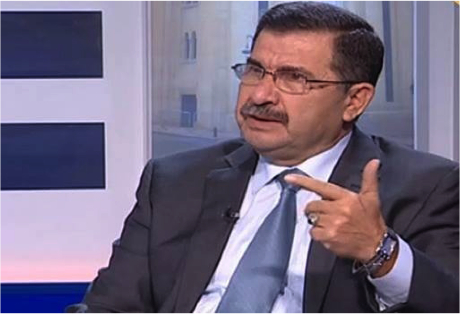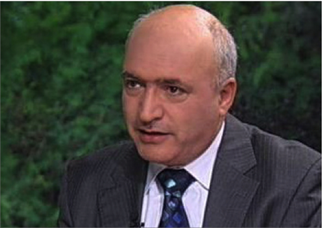
Viktor Mikhin
Almost three years of political, economic and social problems and disastrous policies have transformed life in Lebanon, once known as the “Paris of the Middle East”, and this land of hope now looks like a textbook example of how not to run a state. In a cogent analysis, the Lebanese newspaper As-Safir blames the failures on a political system which is focused on reaching a consensus acceptable to the elites of the country’s various religious groups, and which frequently sidelines experience and competence in favor of petty compromises in a region that has, throughout its history, struggled with the idea of democratic processes.
In the absence of a competent leadership, Lebanon’s economy is poised on the verge of total collapse, with increasingly serious deficits in a wide range of industries – a situation exacerbated by factors including – to name but a few – a national currency in free fall, high inflation, ill-considered government policies and a blundering ruling elite. Crises in many sectors of the economy – as evidenced by an unprecedented rise in unemployment, poverty and crime – has hastened the country on the road to total collapse, raising the specter of a deterioration in social ties and an unstoppable and irreversible decline. In addition to being afflicted with a dizzying list of political, social and economic problems, Lebanon’s relations with the other Arab states in the region, so important to its political and economic stability, are still very fragile, and are being further damaged by an elite that is deaf to the mood in society and has knowingly plunged the country into a depression.
It is possible – even probable – that the upcoming parliamentary elections may change things for the better, by encouraging the politicians to breathe new life into their still viable democratic institutions. All those with an interest in Lebanon’s future, both within the country and internationally, have emphasized the need for the elections to go ahead without any hiccups – not least because the foreign aid that Lebanon receives from the wealthy Gulf States depends on this. Most Lebanese are hoping that the elections will bring new faces into a parliament that is better known for infighting rather than for tackling the serious problems afflicting the country. Whatever the results of the vote, the new leaders will have to deal with a turbulent situation and make a huge efforts to establish and nurture a new political structure and social contract able to confront a system that is notorious for corruption, widespread impunity and lack of accountability. The new lawmakers should not underestimate the difficulty of their mission, which is, put simply, to reverse the chaos of the last few years. If Lebanon is to stand on its feet again it needs to eradicate the culture of crime that has dominated the country for many years, reaching a peak almost nine years ago and remaining at that level ever since.
Since 2020 the political situation has worsened, adding to the country’s problems. Initially politicians argued about the possibility of establishing an interim government, but then cabinet meetings were suspended, which led to even more arguments. Without a competent leadership, the country is simply drifting from one crisis to another, leaving the public – ordinary Lebanese families – to deal with most of the country’s social and economic problems. According to the Lebanese newspaper An-Nahar, almost 80% of Lebanese households are living below the poverty line (compared with a global average of 28%) and almost 50% are living in extreme poverty (four times the global average). Over the last two years the national economy as a whole has contracted by 60% – one of the largest falls in GDP per capita anywhere in the world. Before its default at the beginning of 2020, the country was already living beyond its means, with a total deficit of $82 billion. Moreover, in an ill-judged attempt to shore up the national currency and rein in inflation, the government spent billions of dollars of the national reserve fund in order to finance loss-making projects. Given the state’s inability to separate the manufacturing sector and infrastructure demands, and its irrational decision to increase salaries in the public sector, it was only a matter of time before the whole national monetary and financial structure collapsed like a house of cards.
Currently the Lebanese Central Bank is squandering its remaining currency reserves (some $12 billion) at a rate of $500 million a month – even after the cancellation of a number of subsidies previously enjoyed by Lebanese citizens. This is a shocking, but entirely foreseeable situation – the ruling elite is simply patching up fiscal leaks in one area, thus causing financial holes to appear in other areas of the economy. In its original report, cited above, As-Safir claimed that “the government has no appetite for carrying out a radical reorganization of the banking sector” and lacks the will to conduct other important reforms, implement new policies or enact new laws to make the rational “corrections” necessary to put the country back on the path towards renewal. Unsurprisingly, as long as the authorities put off major structural reform, the government’s ability to invest hard currency in the economy is declining in real time. This reluctance is largely due to the fact that the current problems actually tend to favor the interests of three major groups – the government itself, borrowers, and traders.
What is more, the traders continue to benefit from generous government subsidies which act as a disincentive to domestic production, favor imports and thus boost the foreign trade deficit. These measures have not been without result – and the consequences – which are well documented – are getting more serious day by day. For example, the banking sector, the mainstay of the Lebanese economy for the last three decades, has been crippled by the deteriorating conditions. There is considerable concern, both domestically and internationally, about the fate of some $85 billion in foreign currency and consumer bank deposits, and bank assets have decreased by $40 billion, resulting in total loss of $5 billion across the sector since 2019.
While most countries have seen something of a bounce-back following the COVID-19 recession, Lebanon’s economy is caught in a self-perpetuating downward spiral. There is very little appetite for investment and the catastrophic decline in real household incomes has had a significant negative impact on consumption. Limited as it is by the need to consolidate its budget and by the financial constraints associated with its austerity measures, the government cannot afford the expansionist intervention necessary to stimulate the contracting economy. Any proposed solution would have to be seen as viable and comply with the recommendations of the International Monetary Fund, which include the appointment or authorization of the IMF to oversee the implementation of reforms and to ensure that this essential and long-overdue process is not undermined by malicious political intrigues. If Lebanon succeeds in this, it could mark the beginning of a long-awaited turnaround, increasing consumer spending, bringing in more hard currency and attracting new investment, thus boosting its faltering economy by perhaps 5%.
In the absence of an agreement, it appears likely that the Lebanese economy will contract even further, and its recession will become the longest in human history. The costs of delay will also grow exponentially, with the financial sector expected to incur losses of almost $70 billion, according to the Lebanese Central Bank. If, two years ago, the government had taken prompt and decisive measures to tackle the crisis, then the losses might have been much lower – less than $31 billion, or a quarter of the total foreign currency deposits currently in the country.
According to economists, in the future the situation in the country may develop in one of two directions. One scenario is a “soft landing”, the result of a comprehensive agreement with the IMF, followed by monitoring of capital movements and budgetary laws, and then structural reforms, which should be closely supervised, and conducted in accordance with the highest levels of inclusivity, transparency and accountability. If this process is properly managed, then international assistance would flood, enabling Lebanon to reverse its current descent into the economic abyss. In the alternative scenario, a “hard landing”, no IMF-approved program, reforms and agreement are implemented. This would result in a total collapse of the Lebanese pound. The only remedy would be to print more money, which would result in hyperinflation – and the spiraling foreign trade deficit would eat away at the country’s remaining hard currency reserves.
The restructuring of the banking sector is of absolutely paramount importance in order to strengthen Lebanon’s financial situation, government system and proven sustainability. What concerns most observers, as well as certain interested parties, is the huge size of the financial sector – about three times the country’s total GDP. This demonstrates that the sector is “overcrowded”- it is too big for the country’s productive economy to finance properly. In addition to the reform of its banking sector, Lebanon’s economy and financial system need to be thoroughly stabilized – a process which should include the restructuring of the national debt and the of the bloated and inefficient public sector. The government also needs to initiate inclusive expansionist reforms – both upwards and downwards – in order to open up the untapped potential of the domestic economy. The country also needs sustainable welfare programs to relieve the economic pressure on Lebanese households, which are struggling under a crushing burden of poverty.
Filed under: Lebanon | Tagged: Leb- reform plan, Lebanon Corrupt Banking System, Lebanon’s financial collapse, The International Monetary Fund IMF | Comments Off on Lebanon Plagued by Social and Economic Woes






